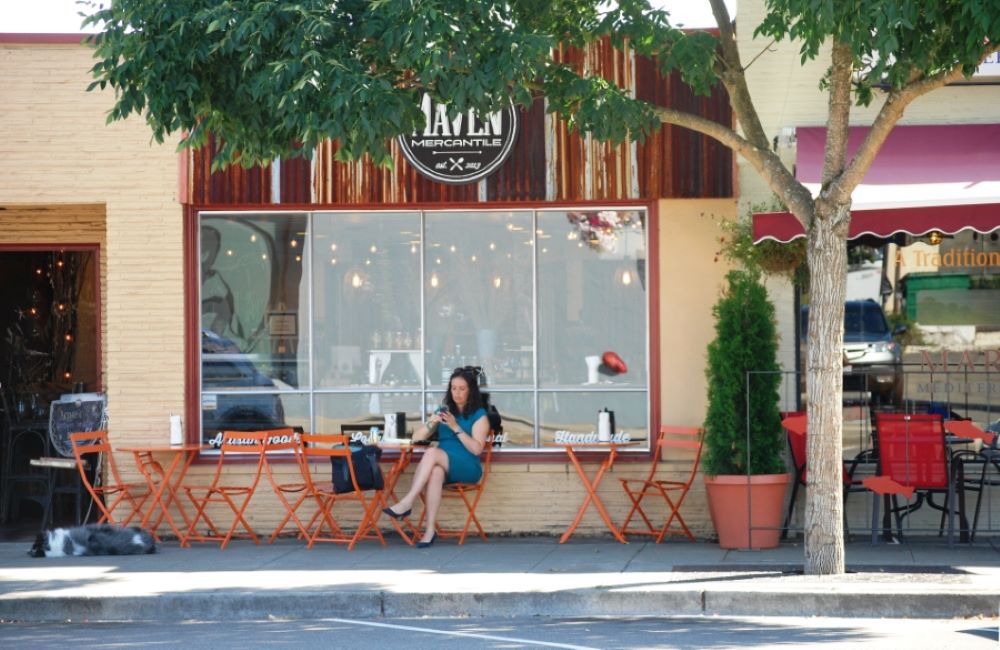Burien homeowner Gigi Green feels lucky to have a six-minute commute to her good-paying union job as a pharmacy technician. But it wasn’t always that way.
“I’ve worked many, many minimum wage jobs. I’ve had an hour-and-a-half to two-hour commutes on the bus,” says Green. “I have driven as far as Everett and Tacoma on occasions for jobs. That does not leave a lot of time for you to be at home with your child.”
Green regrets that she missed out on many of her daughter’s school performances and sports events, as well as the chance to get more involved in her community. Strong minimum wage legislation would have improved her life, she says. “If I’d had a job where I was making a little more money, especially had I been close to home, that would have been extremely helpful.”
Green is part of a coalition called Raise the Wage Burien, which is bringing together Burien residents and workers, community groups and labor unions to gather petition signatures to put a measure on the ballot this fall. Together we aim to raise Burien’s minimum wage to parity with nearby cities like Tukwila, SeaTac, Seattle, and (the newest addition) Renton, where voters just approved a minimum wage increase in February.
We actually began this effort more than a year ago, urging the Burien City Council to take action. Well, this month they finally did, in a 4-1 vote with progressives Hugo Garcia and Sarah Moore abstaining. As ACLU Burien People Power explained on the B-Town Blog, the version passed by this slim majority of the council is inadequate, unfair, and confusing.
The council’s ordinance would count tips and benefits as part of the minimum wage. Burien grocery worker and Transit Riders Union member Arc Di, who was recently interviewed by The Seattle Times, likely wouldn’t see a raise because they get health insurance through their employer — even though they make just $16.53 an hour and have to work a second job to get by.

Burien resident Sandra Aguilar worked as a teacher in the Highline School District for 30 years and still substitute teaches. She says her daughter worked in the restaurant industry, and the extra money she made from tips was essential to improving her economic situation.
“We come from a working class family. We don’t have property, inherited from one generation to another. Whatever we have now we have built,” she says. “A salary is a salary, workers need to get an increased wage and tips should be on top of that.”
As Burien People Power wrote: “Subminimum wages for tipped workers have a long, troubled history going back to the days of slavery. Workers who depend on customers’ whims for their basic livelihood are pressured to put up with sexual harassment, and women and Black and brown workers end up being penalized. Washington got rid of subminimum wages way back in 1988, for good reason. It’s shameful that a majority of Burien’s city council is reintroducing this inequitable practice.”
Even for workers who don’t get tips or benefits, Burien’s minimum wage will not match nearby jurisdictions like Tukwila — where Aguilar’s grandson now commutes to work because the pay is better than in Burien. A large portion of Burien’s workforce would be excluded altogether, because they work for businesses with up to 20 full-time equivalent employees. (Two half-time employees count as one full-time equivalent employee.) For those workers who are covered, instead of about four dollars above the minimum wage, they will be entitled to only two or three dollars above depending on the size of their employer.
The way the legislation defines employer sizes doesn’t make sense. Instead of following the examples of other labor standards laws around the region, which define large employers as having more than 500 employees (including part-time employees) worldwide, the council went with 500 full-time-equivalent employees in King County. That means many huge multinational corporations won’t even count as large businesses. Neither will many, or perhaps any, fast-food franchises. One of the Burien workers who testified at a council meeting last year in support of raising the minimum wage worked at Wendy’s. Would Wendy’s count as a large business under this rule? Probably not.
But who knows? That’s another problem: This legislation is complicated and confusing. The City of Burien has no idea which employers are in which categories. Neither will workers. They will have to rely on their bosses’ word as to whether a higher wage even applies to them. This is an invitation for wage theft, which we already know is a problem in Burien and other South King County cities. The legislation includes next to no enforcement mechanisms, so unscrupulous employers will have little incentive to comply.
Almost by definition, an effective minimum wage law forces employers to do something they’re not already doing — pay their workers more. Even though research shows that raising the minimum wage actually creates jobs and doesn’t significantly increase consumer prices, it’s natural that many businesses will oppose a law that forces them to change their behavior. When businesses, not workers, are testifying in favor of your proposal, you know something’s not right! But that’s exactly what happened at the council meeting where this law was finally passed.
We are extremely disappointed by the council’s lackluster legislation, so we are moving ahead with a citizen’s initiative. Our proposal would raise the minimum wage for all Burien workers to match Tukwila and Renton — $20.29 this year — with a three-year phase-in for mid-size employers and a seven-year phase-in for small employers. Like those cities, it also includes an “access to hours” policy requiring large and mid-size employers to offer available hours to qualified part-timers before hiring on new workers or subcontractors.
We think the people of Burien deserve to be able to vote on strong minimum wage legislation. We are now gathering signatures to place our measure on the ballot, and we invite everyone to join us. This is a grassroots effort and we’re going to need a lot of support to gather enough signatures in time for the November ballot!
You can help by volunteering and donating to the campaign. Learn more at RaiseTheWageBurien.org.



